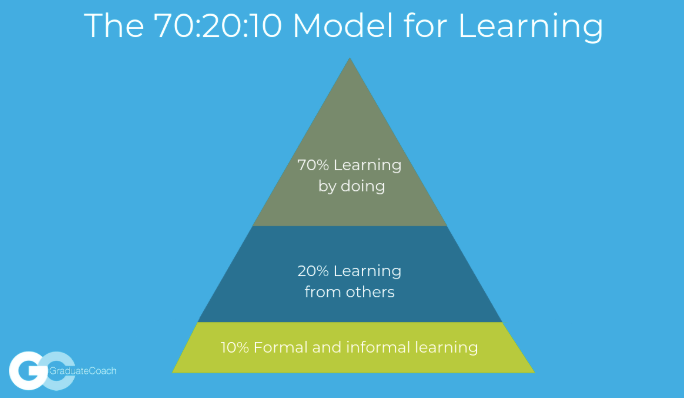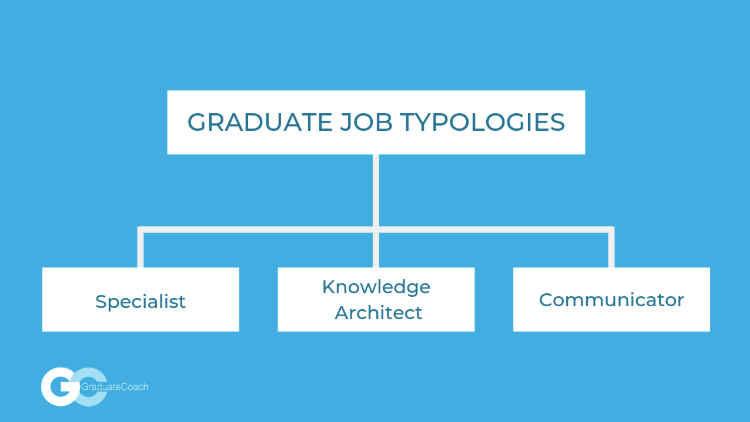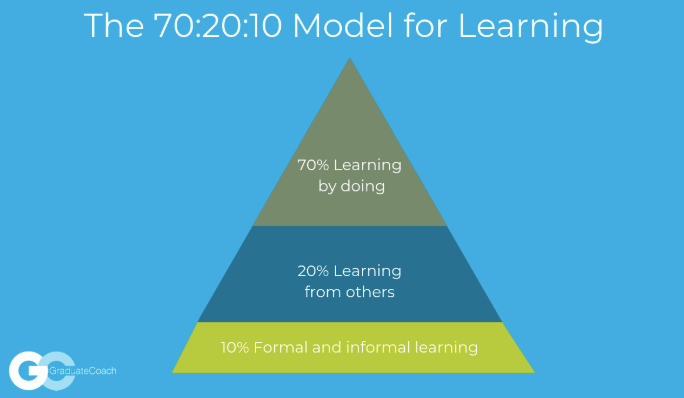
“What are your next steps?” If you’re near the end of your degree, you may notice a lot of people asking you this question.
But what if you don’t have a plan for your career yet?
Not knowing what to do after university can be stressful. Unsurprisingly, many students in the final year of their degree put off even thinking about their career until after graduation.
However, this is not wise if you want to give yourself the best chance of securing a graduate-level job. Having a solid career plan will help you to make more informed career choices and make your graduate job search much easier.
So we’re going to outline our two-step method to help you formulate your graduate career plan.
Understand your career typology

Companies hire 3 different types of graduate:
- Specialists – to apply specific knowledge they gained from their degree such as knowing how to code.
- Knowledge Architects – to analyse data, and derive valuable insights from them.
- Communicators – to formulate and maintain excellent internal and client relationships.
Knowing which type of graduate you are will help you to refine your job search.
We’ve already created a post on how to discover your career path, which explains the 3 graduate job typologies in greater detail.
Action point 1: Read our post on how to discover your career path.
Action point 2: Identify your career typology.
Test your hypothesis
Now that you know what your career typology is, the next thing to do is to test your hypothesis.
Say you’ve identified that you’re a knowledge architect who has an analytical mind and loves to make data-driven decisions; perhaps you’ve also discovered that with these characteristics you feel as though you would be suited to a career in finance.
Work out if this is the right graduate role for you
Action point 3: Head to the ‘Opportunities’ tab of the Debut app, and use the filter to identify jobs that you feel would be suitable for you.
Action point 4: Read the job descriptions very carefully to get a good grasp of the types of tasks you’ll need to fulfil in the role. This will also help you identify what graduate recruiters will be looking for in potential employees.
Next, you’ll need to figure out if the role you’re considering is right for you, and how you’ll demonstrate your suitability to graduate recruiters.
In The Student Book, Graduate Coach Chris Davies outlines the 70:20:10 model, and how it is used by companies worldwide to train and develop employees’ skills. You can also apply this method now to see if the role you’re interested in is really for you:

70:20:10
Action point 5: Reflect on your degree and identify the skills, knowledge or experiences you’ve gained that would be relevant for the role, and look online for any free online courses. This relates to the 10% on the diagram above.
Action point 6: Arrange some shadowing experience in the role you’re interested in. Search your network to see if you can gain insights from someone who’s already in the role you want. This relates to the 20% on the diagram above.
Action point 7: Get a work experience placement in the area you’re interested in. Even if you can only do it for a few days, getting first-hand insights will really help you to work out if the role is right for you. This relates to the 70% on the diagram above.
Remember: There are numerous different graduate job roles that fall under each of the three career typologies.
If you later find out that the role you wanted isn’t quite right, you can simply look into other graduate roles within your typology.
How to build a career plan: Summary
Many students and recent graduates try to map out their career plan based on assumptions. However, it’s so important to make informed career decisions based upon taking action and gaining real insights.
Think of it this way: if you’re able to justify to yourself you are suited to a particular role, you’ll be in a much better position to convince a graduate recruiter during the application process.
If you require any help with mapping out your graduate career plan, visit the Graduate Coach website.

